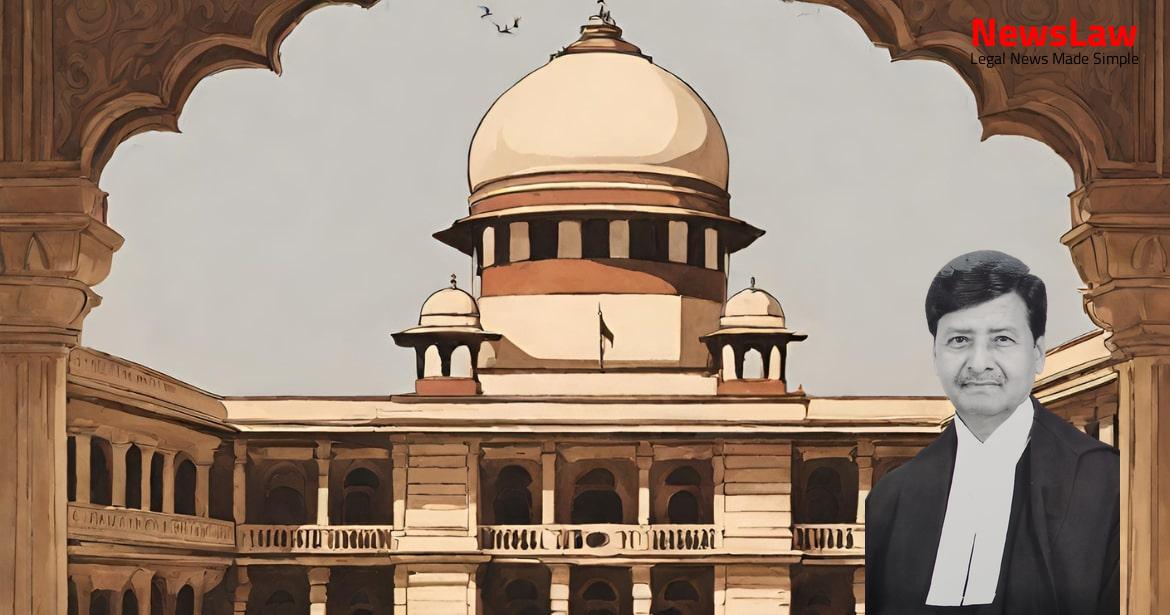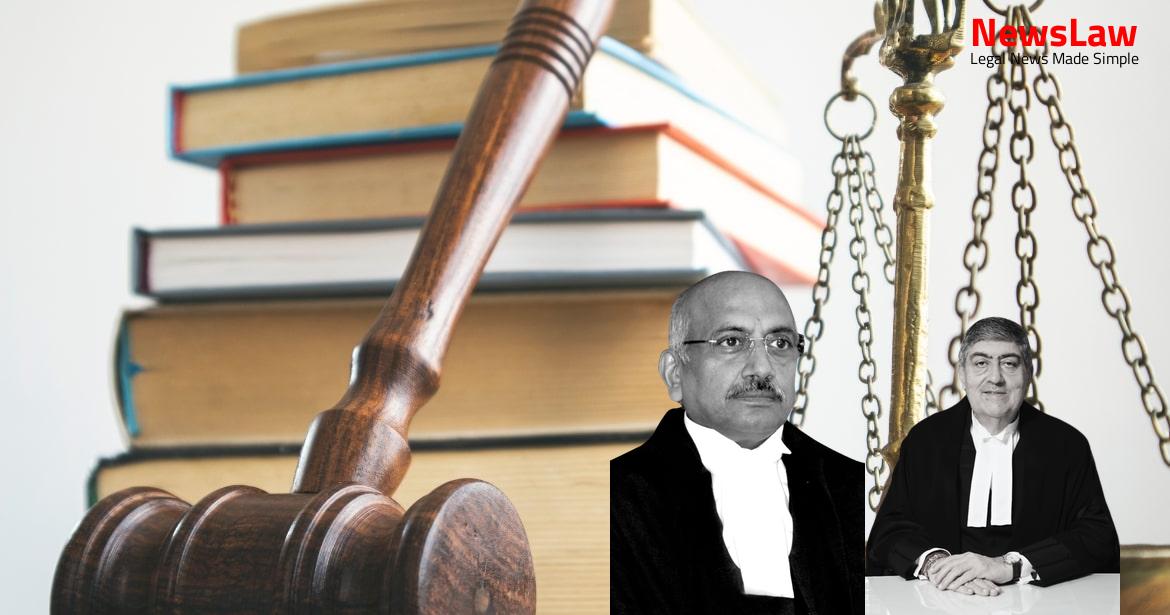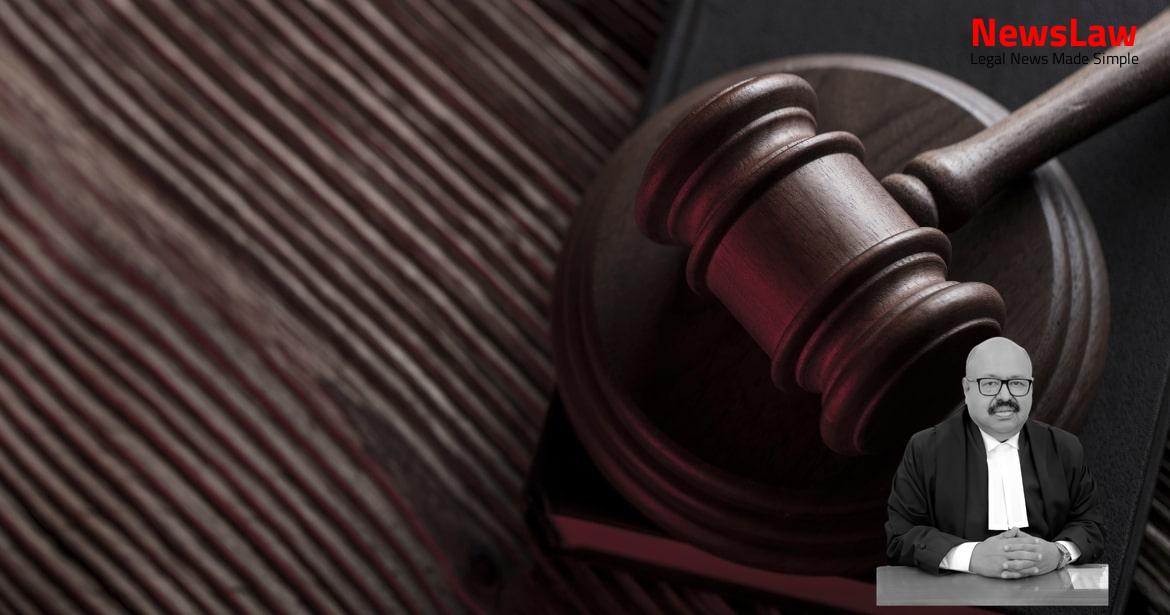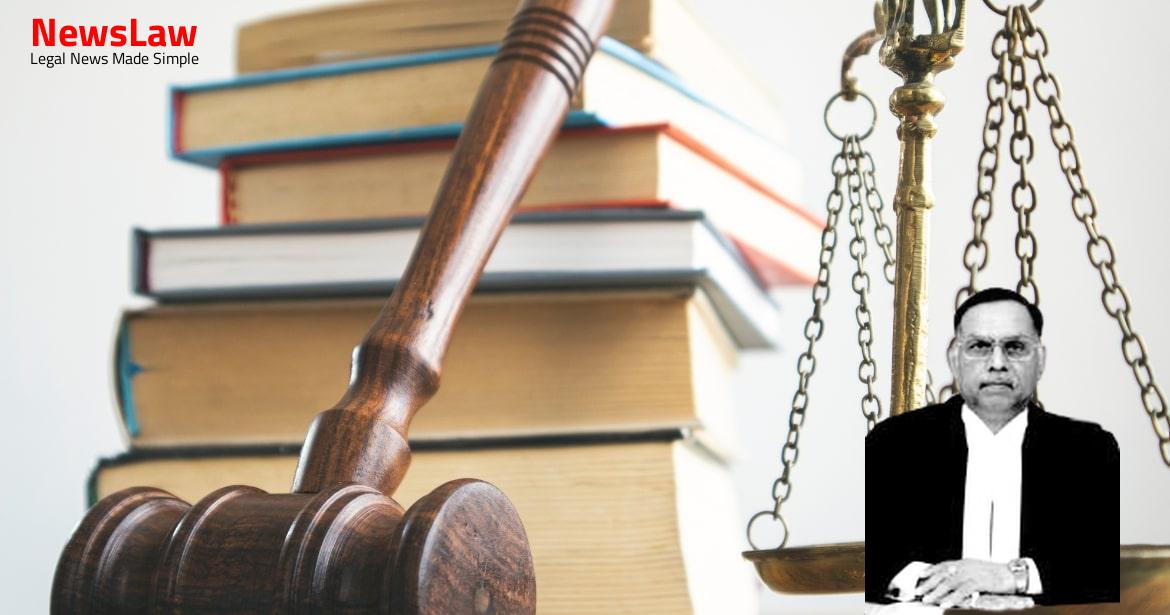In a recent legal case, the court delved into the nuances of rule interpretation and compliance. The focus was on understanding how rules are applied in judicial decisions, setting a precedent for future cases. The court’s analysis sheds light on the importance of following rules diligently and the impact of deviations. Let’s delve deeper into the intricate world of legal interpretation and its implications on jurisprudence.
Facts
- The Civil Services Examination, 2014 was notified by the UPSC on 31 May, 2014.
- The respondent participated in the selection process and qualified for the main examination and interview.
- The respondent attended a medical examination on 3 June 2015 and was declared temporarily unfit.
- The Tribunal dismissed the application for re-medical examination due to delay in filing the application.
- The High Court set aside the Tribunal’s order and directed the re-medical examination of the respondent.
- The respondent-applicant approached for re-medical examination after six months from the date of the medical examination report.
- The respondent-applicant’s name appeared in the consolidated reserve list within the stipulated six months’ period.
- The High Court considered the word ‘ordinarily’ in Rule 7(a)(vii) of Appendix-III of the CSE Rules 2014 for granting an extension to the respondent-applicant.
- A contempt petition was filed due to non-compliance with the interim order for re-medical examination.
- The respondent-applicant was declared temporarily unfit due to a Body Mass Index (BMI) of 32, exceeding the required limit of 30.
- The respondent-applicant’s name was not initially in the main list but appeared in the consolidated reserve list.
- Despite being willing to undergo re-medical examination, the competent authority did not accede to the request of the respondent-applicant.
Also Read: Admission Deadline Adherence in Medical Courses
Arguments
- The appellant’s argument is based on the medical report of the respondent-applicant uploaded on 17 June, 2015, as per CSE Rules, 2014.
- Rule 7(a)(vii) specifies a maximum of six months for the re-medical examination of temporarily unfit candidates.
- The respondent-applicant submitted a representation on 10 March, 2016, exceeding the stipulated six-month period.
- Appellant contends that re-medical examination beyond six months is impermissible and can lead to abuse of discretion.
- The argument stresses that the word ‘ordinarily’ in the rule must be considered along with ‘maximum’ for exceptional cases like pregnant female candidates.
- The discretion exercised by the High Court, if allowed in this case, sets a precedent for potential misuse.
- Respondent’s last attempt in the selection process was in 2014.
- Medical report was individually sent to candidates prior to 2014.
- In the selection process of 2014, individual medical reports were dispensed with.
- Respondent’s medical examination results were uploaded on 17 June 2015.
- Respondent’s name was not initially included in the main list published on 4 July 2015.
- His name appeared in the consolidated reserve list on 19 January 2016.
- He was allotted to Group ‘A’ and Group ‘B’ services on 9 March 2016.
- Representation for re-medical examination was made on 10 March 2016 with a medical fitness certificate dated 24 February 2016.
- Tribunal passed an interim order for re-medical examination on 17 August 2016.
- High Court interpreted ‘ordinarily’ as a special case for the respondent.
- High Court exercised discretion to do justice with the respondent based on his medical fitness and peculiar circumstances.
Also Read: From Nominee to Disqualified: Supreme Court Scrutinizes Age Evidence, Declares Election Invalid
Analysis
- The medical report indicated that the required BMI should not be more than 30, but the respondent’s BMI was 32, resulting in him being declared temporarily unfit.
- The candidate has up to six months to approach for re-medical examination after being declared temporarily unfit.
- Exceptions for pregnant candidates may be considered for relaxation of the six-month rule but must be valid and in conformity with the rules.
- The respondent-applicant filed for re-medical examination after the six-month period from the date of the medical report, which was not a valid justification.
- Rule 7(a)(vii) of Appendix-III of the CSE Rules 2014 states that candidates declared temporarily unfit should have their re-medical examination within six months.
- The respondent-applicant’s case of approaching for re-medical examination beyond the stipulated period was declined by the authorities, leading to his grievance and approach to the Tribunal.
- A re-medical examination was conducted on the respondent-applicant on 12 May 2022, where he was found to be medically fit for all services.
- The consolidated reserve list published on 19 January 2016 showed the respondent-applicant’s name at Sl. No. 16.
- The period of six months for re-medical examination under Rule 7(a)(vii) of Appendix III of CSE Rules, 2014 was emphasized.
- Details regarding the number of candidates declared temporarily unfit for various CSE years were provided, indicating instances where candidates failed to submit medical fitness reports within the prescribed time limit.
- High Court’s interpretation of the word ‘ordinarily’ without considering ‘maximum’ is not sustainable in law.
- Respondent-applicant’s legal foundation not sustainable but it was their fifth and last attempt in CSE, 2014.
- Medical reports were always provided to individual candidates before 2014, but in 2014 they were uploaded on the Department’s website creating confusion.
- Respondent-applicant made representation with medical fitness certificate after his name was on the reserve list in 2016.
- Appellant to consider respondent-applicant for appointment based on re-medical fitness report from 2022 and placement in reserve list from 2016, subject to police verification within four weeks.
- All notional benefits to be provided, excluding actual salary for the period not worked.
- Appeal succeeds and is allowed.
Decision
- No costs involved in the case.
- Pending application(s) will be considered as disposed of.
- The High Court judgement dated 6 April, 2021 has been quashed and set aside.
Case Title: UNION OF INDIA Vs. K. RAJASHEKHARA REDDY (2022 INSC 645)
Case Number: C.A. No.-004569-004569 / 2022



